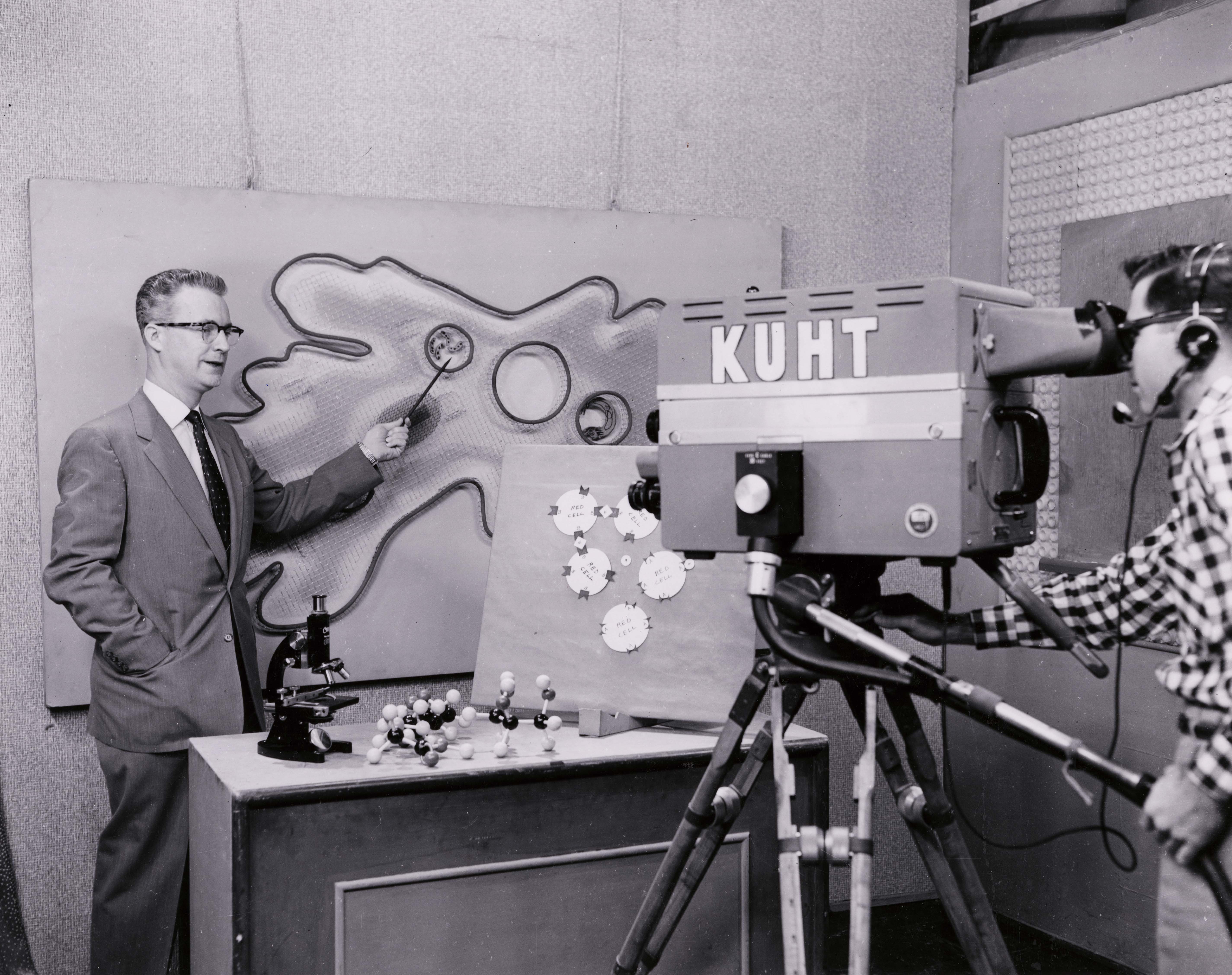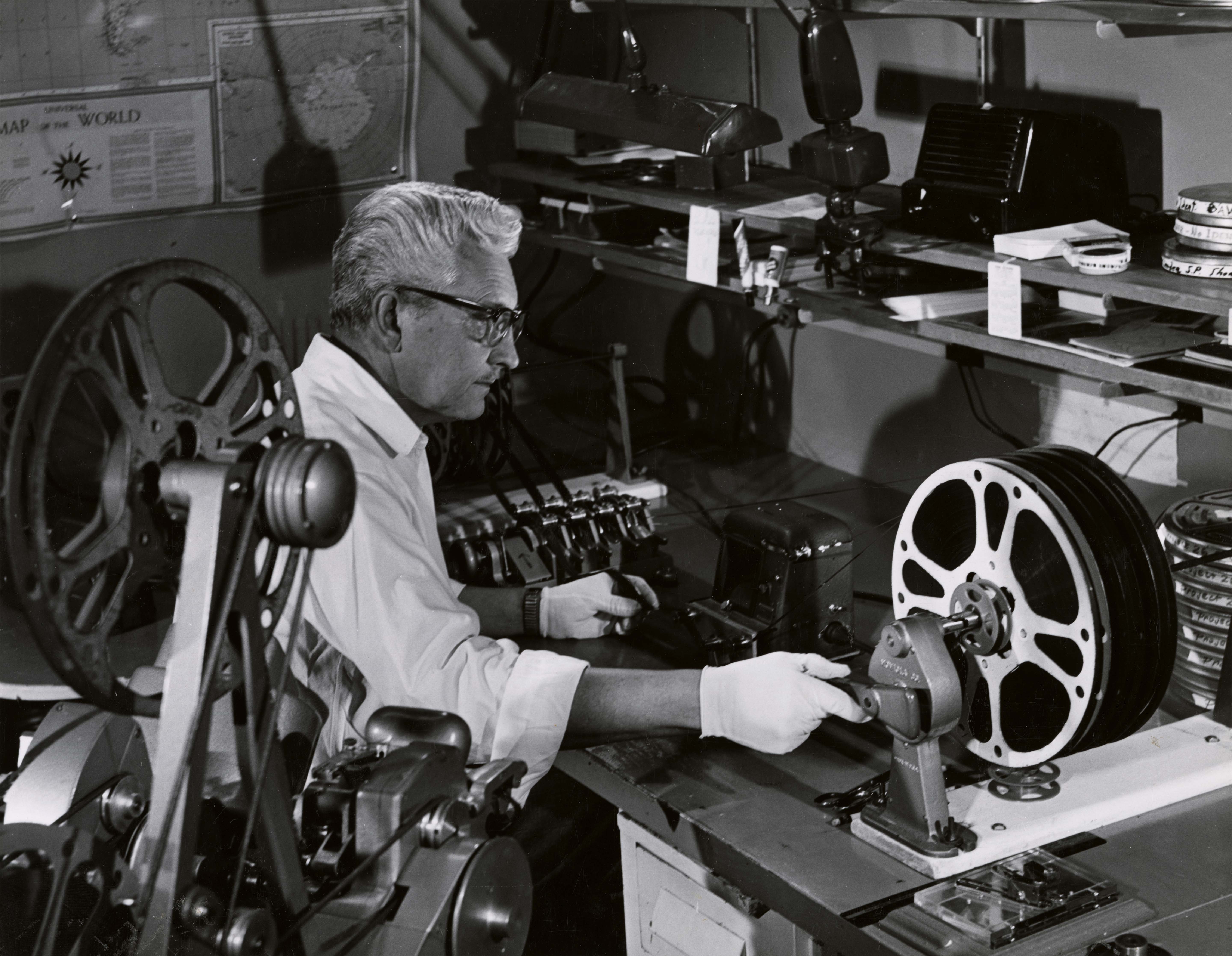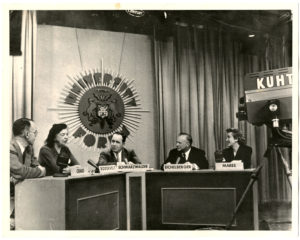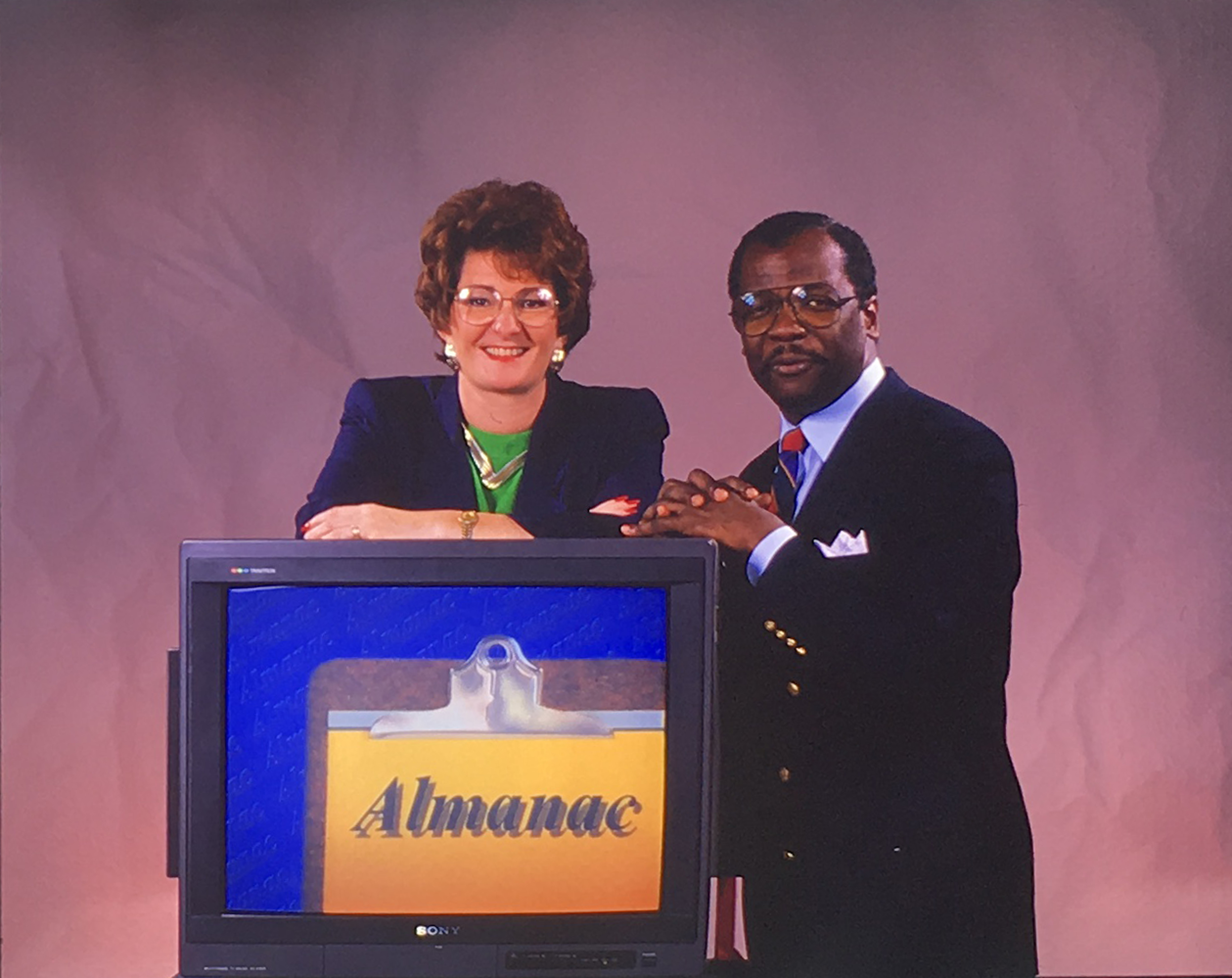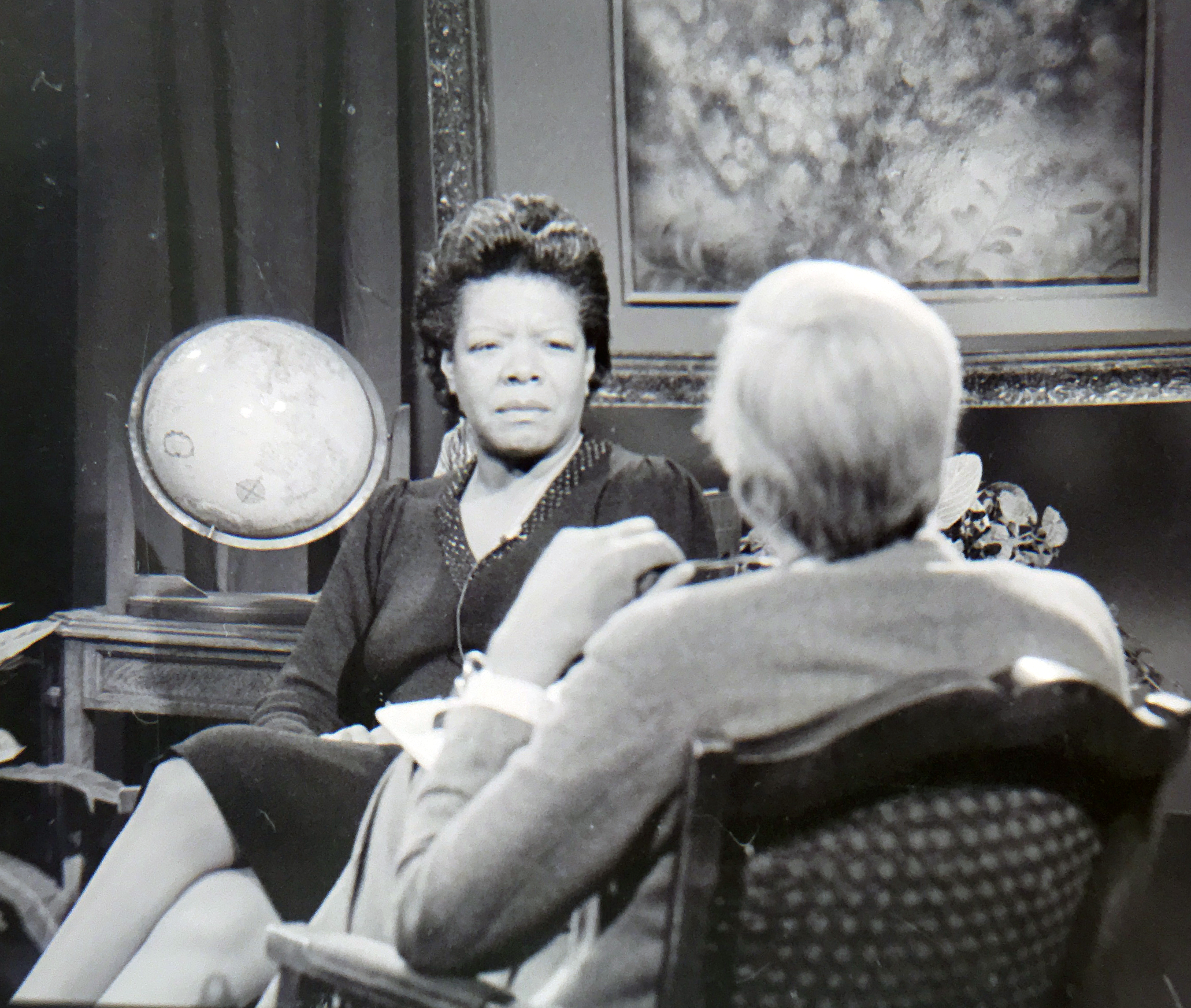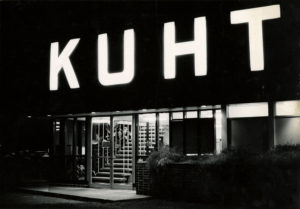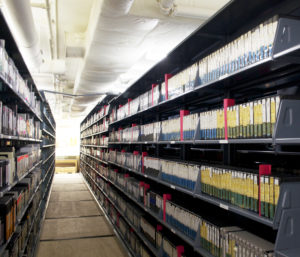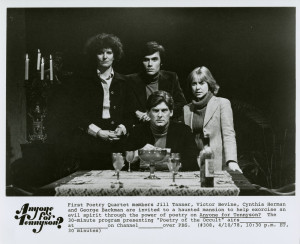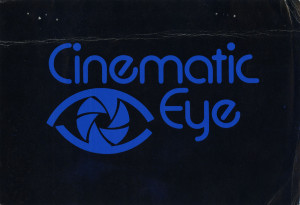
University of Houston Libraries Special Collections is pleased to announce the recent addition of 112 digitized films from the KUHT Film and Video Collection to the Audio/Video Repository. The films, dating between 1953 and the 1970s were digitized with the generous support of the CLIR Recordings at Risk grant. These films represent some of KUHT-TV’s earliest productions and include examples of the United State’s nascent educational and public television system.
KUHT’s first aircheck took place on May 25, 1953. The station began broadcasting the following month, making it the United States’ first educational, non-profit television station to go on air. KUHT was a pioneering influence in the field of “tele-education,” creating for-credit college courses. Included in these recently digitized materials are several of Dr. H. Burr Roney’s biology courses, which went on the air in the station’s first year. By 1958, the freshman biology telecourse “had the greatest enrollment of any standard college course given by television at any school in the nation.” ¹
In the 1960s, KUHT moved away from the production of for-credit college courses but continued to produce elementary education programs in partnership with the Houston Independent School District, as well as content for the enrichment of all viewers. Many KUHT productions documented the activities of the University of Houston and the Gulf Coast region.
Highlights include from the recently digitized materials include:
- Episodes of Target Delinquency, a series produced to inform viewers about the threat of juvenile delinquency with funding from President Kennedy’ Juvenile Delinquency and Youth Offenses Control Act of 1961.
- Episodes of The Way It Is, which educated viewers about financial issues facing consumers
- Surprisingly engaging live kinescope recordings of meetings of the Houston Independent School District
- Campus activities and events such as campus scenes from the 1950s, a university promotional film, the UH football team, and members of the UH dance team.
In 1955 KUHT welcomed a very special guest to their studio on the University of Houston campus. Eleanor Roosevelt, who had stepped down from her role as the first United States Representative to the United Nations Commission on Human Rights two years earlier,¹ was visiting Houston to speak at a luncheon sponsored by the American Association of the United Nations Association. During her brief visit, Roosevelt found time to make an appearance on KUHT’s University Forum, a panel discussion show that was simulcasted on television and KUHF-FM on Friday evenings to a typical audience of 120,000 – almost 20% of the Houston population. Hosted by KUHT founder John C. Schwarzwalder, the show was the only local affairs show that discussed international affairs.²
Roosevelt’s stop in Houston was featured in her daily newspaper column, My Day, which was syndicated six days a week from 1935 to 1962. She comments on the merits of the University of Houston’s television program, the prominence of beef on the dinner menu, and the landscape around Houston.
Jan 12: After the television program on which we appeared at the University in Houston on Saturday we came back to the hotel and had a steak dinner because that seemed to be expected of us. They put on the menu four different kinds of beef.
It was interesting to see the program at the university directed by a girl student. The cameras and all other equipment also were managed by students. A faculty advisor was there and, of course, our moderator was the head of the department. This is very good training and the authorities at the university are proud that they sent 76 of their graduates into commercial positions this past year.
The country just outside Houston is rather gloomy, I thought, flat and very unattractive. As you progress on your journey (Added: toward Dallas), however, you find a little more rolling country and it looks more friendly. Most of the land which is not occupied by oil fields is grazing ground for cattle.
To learn more about Roosevelt’s trip to Houston, check out the Rice History Corner blog posts (and comments!), The Great Eleanor Roosevelt Mystery Solved! and “our day in Houston was a very successful one, 1955”.
_________
¹ “United States Ambassador to the United Nations Human Rights Council,” Wikipedia. https://en.wikipedia.org/wiki/United_States_Ambassador_to_the_United_Nations_Human_Rights_Council
² Hawes, W. (1996). Public television: Americas first station: An intimate account. Santa Fe (N.M.): Sunstone Press. pg. 44.
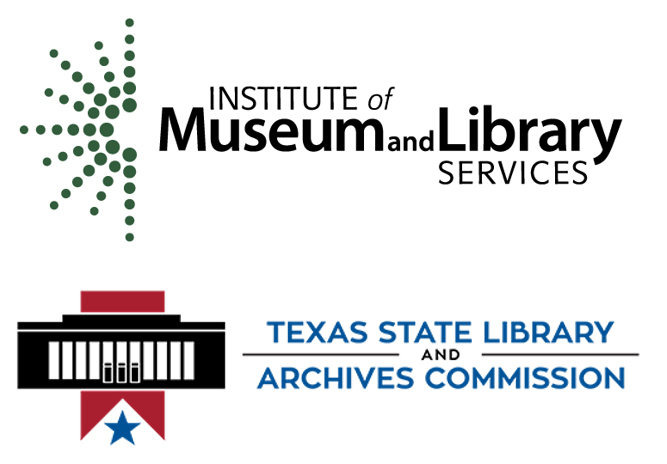
The Institute of Museum and Library Services generously funds a “grants to state program,” which uses a population-based formula to distribute funds to State Library Administrative Agencies across the country. In Texas, these funds are distributed via several different types of competitive grants, including TexTreasures, which is designed to help libraries make their special collections more accessible for the people of Texas and beyond.
University of Houston Special Collections is pleased to announce the online publication of over 500 recently digitized videos from the KUHT Collection. These videos, accessible via the newly unveiled UHL AV Repository, were digitized with funds from the Institute of Museum and Library Services’ TexTreasures grant, administered by the Texas State Library and Archives Commission.
Included in the project are several significant series and documentaries produced by KUHT between 1971 – 2000. One series, Almanac, tackled some of the major political and social issues facing Houston in the 1990s, including complex questions of race, gender, and economic inequality. Episodes such as those that cover the Harris County Grand Jury decision not to indict a Houston Police Department officer in the shooting of Byron Gillum and a discussion of the ban on homosexuals serving in the military exemplify the program’s willingness to pursue tough issues. Notable figures, such as Mayor Sylvester Turner, made several appearances on the program early in his political career, and even President Jimmy Carter appears alongside Dominique de Menil to discuss the Carter-Menil Human Rights Prize.

All materials digitized were previously inaccessible due to their obsolete video formats, such as this U-matic video.
Another significant series, The Capitol Report, features interviews with Texas legislators discussing issues that remain of great importance today. Representation, prison reform, and education are just a few of the topics that are covered, and many guests will be familiar to those who follow Texas politics today.
Several noteworthy documentaries and feature programs were also digitized under the TexTreasures grant, such as Houston in the Age of AIDs (1985) and Wetlands (1991).
In addition to full episodes available on the AV Repository, an online exhibit created by graduate student Carolann Madden contextualizes the many series featured online: http://exhibits.lib.uh.edu/exhibits/show/kuht-textreasures, and includes contemporary documents from the KUHT Collection.
When I arrived at the University of Houston Special Collections a year and a half ago as the first dedicated Audiovisual Archivist in the department, I was delighted to discover that UH was home to the KUHT Collection. I personally have a long-time love of public broadcasting, and KUHT holds the notable, and perhaps surprising, title of the “first educational non-profit television” in the country. Educational television was championed in the 1950s as a way to turn every living room into a classroom and would eventually evolve into what we know today as the Public Broadcasting Service (PBS).
One of my first tasks was to gain better intellectual control of the collection in order to help set preservation priorities and ensure access to researchers. Under the guidance of Special Collections Program Manager Matt Richardson, several dedicated and hardworking student workers shifted over 2,000 films and 10,000 videos out of boxes and to new dedicated AV shelving. This new shelving meant that videos could be stored standing up on edge, rather than stacked in boxes, which put the fragile tapes at risk of damage.
The improved storage method also allowed for easier access to tapes for inventory purposes. Working on and off on the inventory over the past year, I am now nearing completion, with just a handful of shelves left to go. Over the year, I have learned a lot about the programming of KUHT over their sixty-three-year history. I’ve come across such curious titles as “Heartbreak Turtle” and “Teenager: A Disease of What?” as well as moments of historical significance captured on film, such as an early 1960s interview with Houston civil rights leader Rev. William A. Lawson. One of my personal favorites from the collection is the series, “People are Taught to Be Different,” available to view on the UH Digital Library. This series, a 1956 collaboration between KUHT and Dr. Henry Allen Bullock from TSU, utilizes interpretive dance and narration to describe the universality of emotion across race, nationality, and culture.
In an effort to make these materials more readily accessible to the public, the KUHT Collection finding aid has been updated to note the extent of the audiovisual holdings, and now includes an abridged list of collection titles, with an eventual eye at making the entire inventory available online. Furthermore, we have digitized and posted one pre-existing Rolodex-style catalog of 1″ Video for researchers to use. Our hope is that this resource will be a valuable asset to those with an interest in the history of public television, Houston, and the many other topics touched upon in six decades of non-profit television productions.
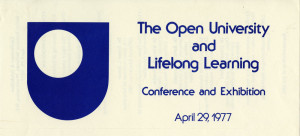 The University of Houston has long had an ambitious and experimental thread running through its history. Our University Archives are a wonderful resource for tracing that history, as they document both the victories won and the challenges overcome.
The University of Houston has long had an ambitious and experimental thread running through its history. Our University Archives are a wonderful resource for tracing that history, as they document both the victories won and the challenges overcome.
Of particular interest is the concept and experiment of the Open University program. In the 1970s, the University of Houston and a small handful of other U.S. universities attempted to implement a concept being established in the U.K. In an attempt to increase access to higher education, the British government sought to wed the resources of the BBC with a new university concept to target those interested in distance learning and pursuing higher education on a more flexible schedule. The non-traditional student and students with disabilities became the natural fit for this new concept.
The University of Houston, with its on-campus resources of KUHT and KUHF, as well as its long-time commitment to increasing access to higher education, seemed a fertile ground for this experiment to take root stateside. The Open University Records contain correspondence, reports, program information, workbooks and classroom supplements that serve to document the implementation of this goal.
Trends in education have a tendency to ebb, flow, and often cycle back. While the Open University is still going strong across the pond, it is not terribly common to hear the term “Open University” tossed about these hallowed halls of academia. However, as evidenced by the recent announcement of the partnership with Coursera and the long-running success of UH’s Distance Education program, that legacy of delivering higher education via non-traditional means to non-traditional students has remained a constant.
If studying trends in education is of interest to you, or if you simply want to look through the class materials for “Anyone for Tennyson?” and “Cinematic Eye,” browse the finding aid for the Open University Records or come visit us when you have a moment.
